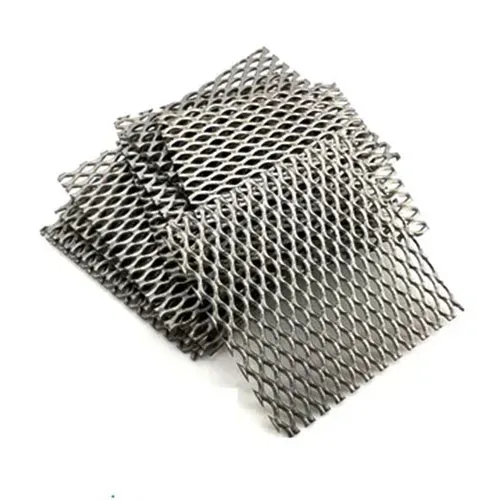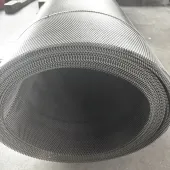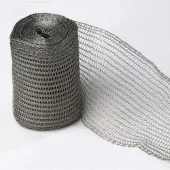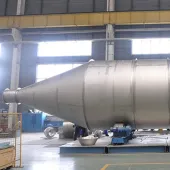
Titanium Mesh vs. Stainless Steel: Why Titanium Wins in Corrosive Environments
When selecting a mesh for industrial filtration, chemical processing, or marine applications, engineers often face a choice: stainless steel or titanium? While stainless steel (like 316L) is a good, general-purpose material, there are many environments where it will quickly fail. In these critical situations, titanium mesh is not just a better option—it’s the only reliable one.
Here’s a head-to-head comparison to show you why titanium thrives where stainless steel fails.
The Secret to Titanium’s Strength: The Passive Layer
The key difference lies in the nature of their protective oxide layers.
- Stainless Steel: Relies on a chromium oxide layer. This layer is effective in many situations but is vulnerable to attack by chlorides (like salt). Chlorides cause pitting and crevice corrosion, which can lead to catastrophic failure.
- Titanium: Forms an extremely stable, tenacious, and self-healing layer of titanium dioxide (TiO2). This layer is virtually impenetrable and inert to a vast range of chemicals, especially chlorides.
Head-to-Head in Harsh Environments
1. Seawater and Brine
- Stainless Steel: Will eventually suffer from pitting corrosion, especially in warm, stagnant seawater.
- Titanium: Is completely immune to corrosion in seawater at all temperatures. It is the gold-standard material for any marine application.
- Winner: Titanium, by a huge margin.
2. Wet Chlorine Gas and Hypochlorite Solutions
- Stainless Steel: Is rapidly attacked and destroyed by wet chlorine and strong hypochlorite solutions.
- Titanium: Excels in these environments, making it essential for equipment in the chlor-alkali industry and for sodium hypochlorite generation systems.
- Winner: Titanium.
3. Strong Oxidizing Acids (e.g., Nitric Acid)
- Stainless Steel: Generally performs well.
- Titanium: Also performs excellently, often with a higher tolerance for elevated temperatures and concentrations.
- Winner: A draw, with titanium often having a slight edge in extreme conditions.
4. Reducing Acids (e.g., Sulfuric, Hydrochloric)
- This is the one area where commercially pure titanium can struggle. However, specific titanium alloys (like Grade 7 or 12) are designed to handle these acids. Standard stainless steel also has limitations here.
The Cost vs. Lifespan Equation
While the initial purchase price of titanium mesh is higher than stainless steel, this is a misleading comparison. In a corrosive environment where a stainless steel mesh might last for months, a titanium mesh can last for decades.
When you factor in the cost of replacement parts, lost production during downtime, and potential damage from a system failure, the total cost of ownership for titanium mesh is significantly lower in any application for which it is properly specified.
Conclusion: Choose the Right Tool for the Job
Don’t think of titanium mesh as an expensive stainless steel. Think of it as a completely different class of material. For general-purpose, non-corrosive use, stainless steel is fine. But for any critical application involving saltwater, chlorides, or aggressive industrial chemicals, investing in titanium mesh is the smartest engineering decision you can make.
Quick Contact
Related Products
-

Titanium Mesh
Titanium Mesh

